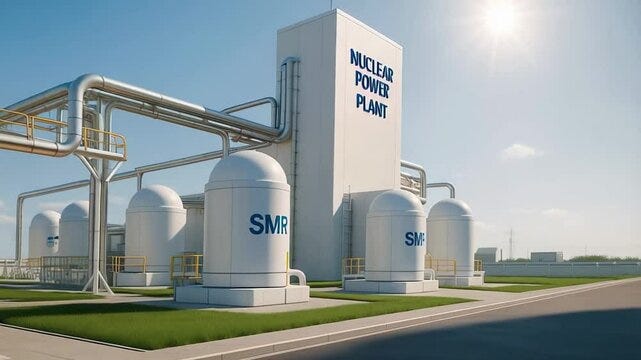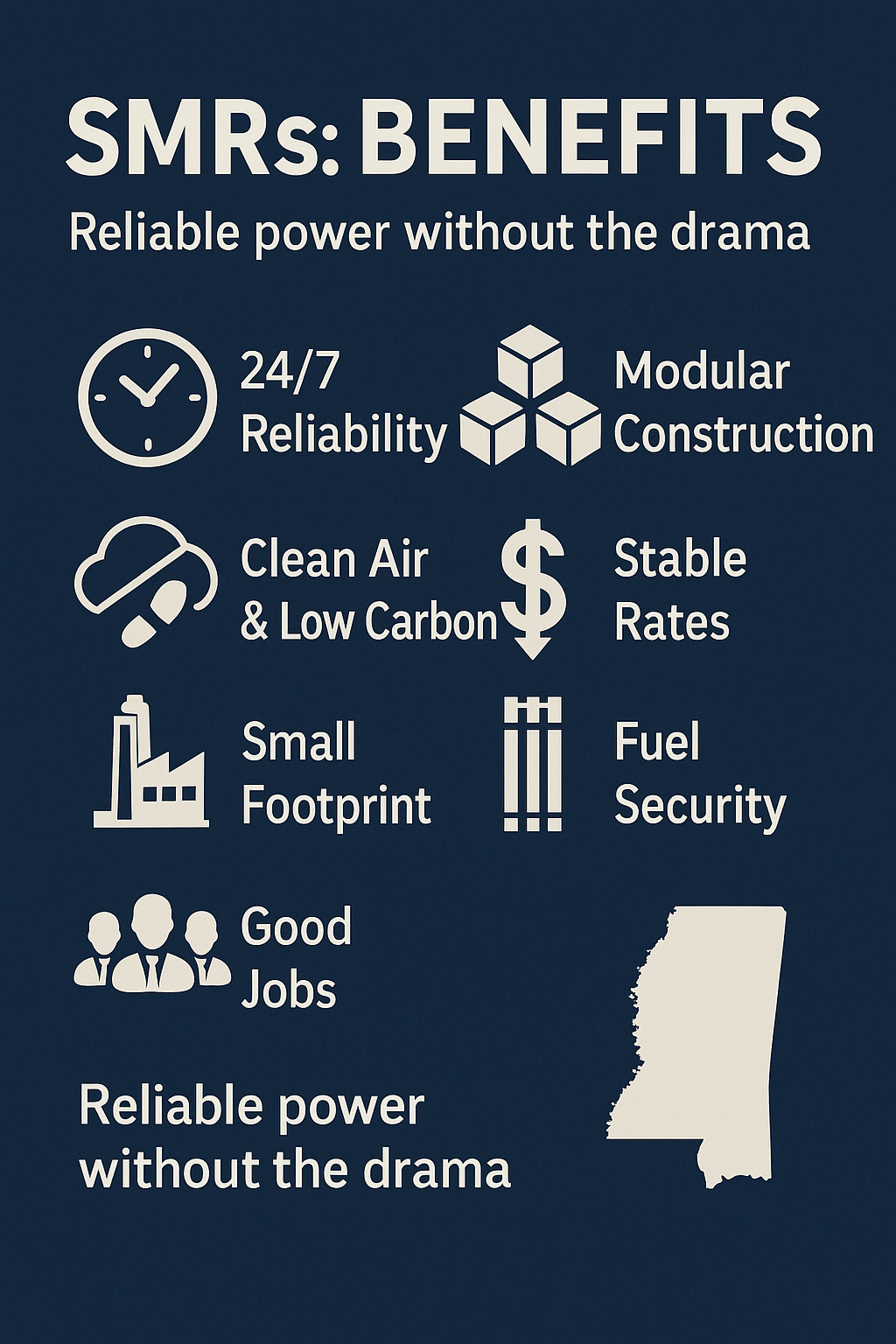Why Mississippi Should Bet on Small Modular Reactors
Mississippi needs power that works when the weather doesn’t and when gas prices spike. We need electricity that is steady, clean, and affordable over the long haul. That’s why we should move toward small modular reactors (SMRs).
SMRs are proven nuclear science packaged in smaller, factory-built units that can be installed at existing power sites. They run 24/7. They don’t depend on a gas pipeline in a freeze. They produce power without smoke or soot. That’s real reliability, not slogans.
Cost - The first unit will not be the cheapest kilowatt-hour on your bill. First-of-a-kind projects always cost more. But factories learn, supply chains mature, and the fifth and tenth unit get much cheaper. And one rule should be non-negotiable: large new loads must pay their full cost. Don’t socialize private expansion onto Grandma’s light bill.
If Amazon Web Services (AWS) wants to build billion-dollar data centers here, great—welcome to Mississippi—but AWS should pay the full cost for the lines, substations, and capacity it requires. Use special contracts and demand charges so growth isn’t dumped onto retirees and small businesses
Safety - People hear “nuclear” and think disaster. The facts tell a different story. U.S. commercial nuclear plants have operated for generations with no radiation deaths. Modern SMR designs are passively safe—if something goes wrong, physics helps shut them down without operators having to save the day. The reactors are smaller, many with components located underground, wrapped in multiple layers of steel and concrete. Fuel is sealed. Emergency systems are redundant. Per unit of electricity, nuclear is among the safest energy sources we have. And unlike gas or coal, nuclear doesn’t dump any pollution into the air our kids breathe. The waste is small in volume, contained, and tracked—handled like the hazardous material it is, not scattered across the sky.
What the state should do now
Require every utility resource plan to include a nuclear build option so SMRs compete head-to-head with gas, solar, and batteries on reliability and winter performance—not just today’s sticker price.
Pick a practical design that uses standard low-enriched uranium fuel available now. Avoid exotic fuel bottlenecks.
Pre-permit two brownfield sites (water, seismic, interconnection studies) so we’re ready when the market is.
Protect ratepayers: fixed-price contracts, milestone payments, independent schedule reviews, and special tariffs so big users cover their own costs.
Build the workforce pipeline through our community colleges with scholarships tied to in-state service.
This is conservative energy: reliable, clean, and accountable. No mandates. No sermons. Just power that works. Let’s lead with quiet competence—start the site work, choose a sensible design, and build the first unit the right way so the next ones are faster and cheaper. Mississippi can keep the lights on, keep our air clean, and keep our freedom.





I was studying nuclear physics when three mile island happened. More media than reality. I am an Electrical Engineer with emphasis on power generation and transmission as well as microwave technology.
We have been operating small nuclear plants on every submarine we have.
Why only do two? It should be next to an existing power plant so the other infrastructure as far as transmission lines are less costly.
Permit the sites all over Mississippi near existing power plants. Let the State be the lead agency period for permits. This will be the longest part of a project. There will be existing permits in case that utility wants to go nuclear.
We need this type of power now.
That sounds great to me Dana! Let’s start in Marshall County!